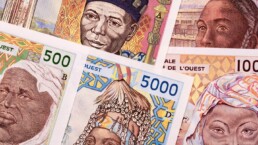Image: World Bank
According to the World Bank Collection of Development Indicator (2016), 65% of the people in Africa have no access to clean reliable and affordable energy. Over the years, this has undermined economic growth and sustainable development. In Sub-Saharan Africa, access to affordable and reliable energy services is fundamental to reducing poverty, improving health, increasing productivity, enhancing competitiveness and promoting economic growth.
In the Article titled “What is the state of electrification in Africa?” the author Lebo Mahlare stated clearly the African current situation, where over 550 million people on the continent are without access to energy, which translates to approximately 48% of the share global population. She further observed that it is easier to extend the grids to areas that are densely populated, but a large population of those without electricity are rural communities who are kilometres away for the nearest grid, sparsely populated, and have sporadic income. As such, off-grid power becomes the most economical and efficient pathway of reaching those areas. She also acknowledged the efforts of the leading East Africa renewable energy players, such as D-light, Off-Grid Electric and M-Kopa Solar, who have contributed tremendously to revolutionize the sector.
The International Energy Agency (IEA) (2017) estimates by 2030, renewable energy sources will power over 60% of new access, where off-grid and mini-grid systems provide the means for almost half of new access, underpinned by new business models using digital and mobile technologies. Mini-Grids is the future because they can utilize locally available energy resources such as wind, solar, biomass and hydro, as using locally available energy sources has the advantage of low running cost, greater energy security and lower environmental pollution. Deploying mini-grids systems also has greater welfare impacts than home based electrical systems because of its ability to power larger loads, and thus can produce electricity for both domestic use as well as local businesses. As a result, they have a positive impact on the local economy and contribute to sustainable development and if appropriately designed, can allow for a growth in demand in the future.
For Africa to contribute to Sustainable Development Goal 7 to achieve energy access for all, it is necessary that an enabling environment is provided in order to promote the ease of doing business. Today, Nigeria is currently at the forefront of mini-grid development in Sub-Saharan Africa. President Muhammed Buhari in 2016 signed the Paris agreement where he committed Nigeria to reducing “Green House Gas Emissions unconditionally by 20% and conditionally by 45%. He said Nigeria’s commitment to the Paris Agreement is articulated through its Nationally Determined Contributions (NDCs) “that strive to build a climate-resilient-society across the diverse terrain of Nigeria. Several regulations were put in place to ensure the ease of doing business. They include:
- The NERC Mini-grid Regulation (2016) which was enacted to address three major issues:
- Investors’ concerns, that the main grid might arrive faster than expected and would result in their customers being taken by the main grid operator.
- Other competitors might take away good sites especially where subsidies start to be available.
- Clarifying issues concerning whether cost-effective tariffs can be charged
- Assure consumers that mini-grids are safe; their power is reliable and not too expensive
2. Nigeria Mini-grid Investment Brief (2017): it describes market opportunities in Nigeria, its readiness for mini-grid deployment, laid out plans and strategic partnership for rapid scale-up and
3. The Operational Guidelines for Rural Electrification Fund (2017).
Enacting good policies was just the first step, deploying mini-grids has its own unique challenges and as such certain factors need to be considered before deployment. The article titled – ‘A New Outlook: Making Mini-grid Attractive to Investors, clearly stated key indicators in selecting viable mini-grid sites such as distance to electrical grid, average electrification rate in community, population density as well as number of productive and commercial users. However, to transform the Africa economic drive using clean energy, we must look beyond the opportunities that access to energy provides.
- We must ensure that local content is fully used across the value chain. This can be done by building the capacity of local investors and entrepreneurs to enhance equitable technology transfer mechanisms in the use of local content in the renewable energy sector in order to boost Africa’s economy.
- We must build the capacity of local investors, renewable energy practitioners and youths, through advocacy and training, thereby raising a new generation of renewable energy and climate experts in Africa.
- Renewable energy practitioners must collaborate and form strategic partnerships with installers, original equipment manufacturers (OEMs) and the end users in the renewable energy value chain.
The views expressed in this article are those of the author alone and not the Future Africa Forum.
The views expressed in this article are those of the author and do not necessarily reflect the views of Future Africa Forum. Future Africa Forum is a pan-African policy think-tank and policy advisory consultancy headquartered in Nairobi, Kenya.


